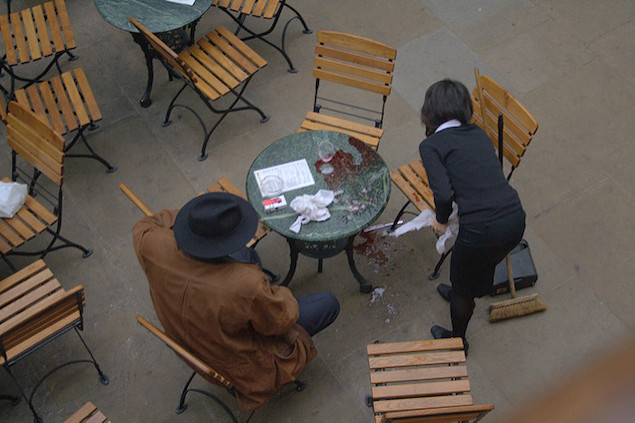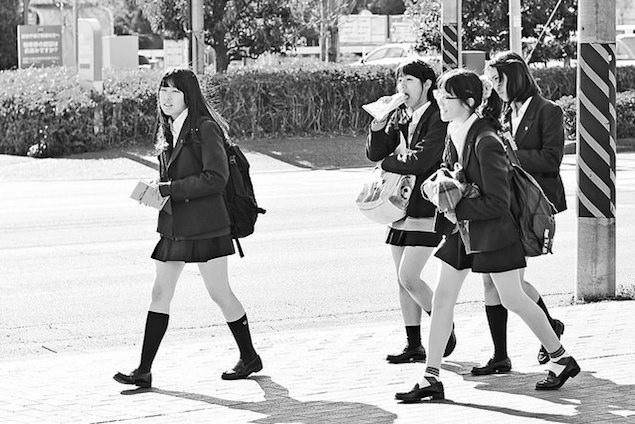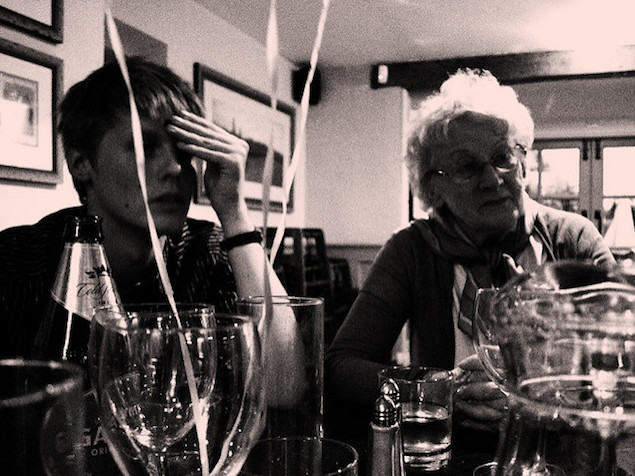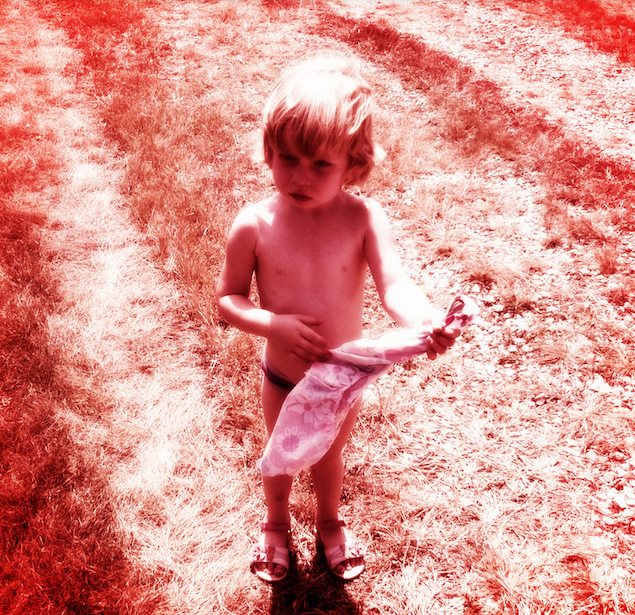Relationships • Conflicts
On Being Unintentionally Hurt
One of the most fundamental paths to calm is the power to hold on, even in very challenging situations, to a distinction between what someone does – and what they meant to do.
In law, the difference is enshrined in the contrasting concepts of murder and manslaughter. The result may be the same; the body is inert in a pool of blood. But we collectively feel it makes a huge difference what the perpetrator’s intentions were.
We care about intentions for a very good reason: because if it was deliberate, then the perpetrator will be an ongoing and renewable source of danger from whom the community must be protected. But if it was accidental, then the perpetrator will be inclined to deep apology and restitution, which renders punishment and rage far less necessary. Picture yourself in a restaurant where the waiter has spilt a glass of wine on your (new) laptop. The damage is severe and your rage starts to mount. But whether this was an accident or a willing strategy is key to an appropriate response. A concerted desire to spill signals that the waiter needs to be confronted head on. You may have to take radical defensive steps: like shouting at them or calling for help. But if it was an accident, then the person isn’t your enemy. There’s no need to swear at them. In fact, it makes a lot of sense to be forgiving and kindly, because benevolence will imminently be heading your way.
Motives are, therefore, crucial. But unfortunately, we’re seldom very good at perceiving what motives happen to be involved in the incidents that hurt us. We are easily and wildly mistaken. We see intention where there was none and escalate and confront when no strenuous or agitated responses are warranted.
Part of the reason why we jump so readily to dark conclusions and see plots to insult and harm us is a rather poignant psychological phenomenon: self-hatred. The less we like ourselves, the more we appear in our own eyes as really rather plausible targets for mockery and harm. Why would a drill have started up outside, just as we were settling down to work? Why is the room service breakfast not arriving, even though we will have to be in a meeting very soon? Why would the phone operator be taking so long to find our details? Because there is – logically enough – a plot against us. Because we are appropriate targets for these kinds of things, because we are the sort of people against whom disruptive drilling is legitimately likely to be directed: it’s what we deserve.
When we carry an excess of self-disgust around with us, operating just below the radar of conscious awareness, we’ll constantly seek confirmation from the wider world that we really are the worthless people we take ourselves to be. The expectation is almost always set in childhood, where someone close to us is likely to have left us feeling dirty and culpable – and as a result, we now travel through society assuming the worst, not because it is necessarily true (or pleasant) to do so, but because it feels familiar; and because we are the prisoners of past patterns we haven’t yet understood.
A reason why others may unintentionally harm us is that we often look rather strong from the outside. We may not even be aware of how skilled we have become at putting up a cheerful, robust facade around others. It’s something we perhaps learnt in our early adolescence, at about the time we started at the new school. While often an advantage, it can lead people to say tough and hurtful things – without really meaning to. They just don’t know how bruised and fragile we already are. They don’t grasp just how big an impact on us their words or actions can have, because they don’t know – and can’t really know – how vulnerable we already are in our psyches.
Someone might come up to you at work and give a pretty unflattering assessment of a presentation you made. They mean to make some sort of impact. They want you to notice a bit. But from your side it feels very different. It’s deeply, catastrophically upsetting. You’d been nervous beforehand; now this! In another role last year you’d had some problems here and had seen a life coach. In this new job, you’d been determined to lift your game. Your self-respect was already bruised. And your father was especially critical of the way you spoke, mocking the slight lisp you had before the age of eight. But others can’t tell all this. You don’t look especially at risk. You’re like a vase with tiny cracks you can hardly distinguish. Yet even a minor jolt will make the whole thing fall apart.
Ideally we would be able to give other people early warning of our areas of fragility, so that they could take this into account when dealing with us. We’re pretty ready to do this around physical bruises and injuries. If you have a bandaged hand, people know not to grab it. And, in theory, the same could happen with tender psychological areas.
Yet, it can feel too shameful and convoluted to explain to others just how many cracks we are already carrying. There’s no time. And in any case the reasons may not reflect well on us. We’re perhaps fragile because we wasted a lot of money; because we’re having an affair and feel deeply guilty and terrified we’re going to get found out; because we’ve been watching so much online pornography we feel disgusted at ourselves. We feel we’re burdened and can only just keep going: and yet we can’t often really let other people know why. And so we are faced with a tortuous dilemma: people will cause us a lot more distress than they ever meant to, given who they thought we were.
Secret fragility – the cracks that have been accumulating over days, weeks and years – explains our occasionally extraordinary outbursts which can be so puzzling to onlookers. An apparently tiny remark unleashes a furious response from us. Imagine we are paying at the local corner shop and the total is a bit more than we’d been assuming it would be. Instantly, we feel that the person at the till is trying to cheat us. We hand them a note and they take a bit longer counting out the change and we suddenly say furiously ‘Just keep it’, and make a grim and storm out, crashing painfully into large tub of new potatoes as we do so.
Small children sometimes behave in stunningly unfair ways: they scream at the person who is looking after them, angrily push away a bowl of animal pasta, throw away something you have just fetched for them. But we rarely feel personally agitated or wounded by their behaviour. And the reason is that we don’t assign a negative motive or mean intention to a small person. We reach around for the most benevolent interpretations. We don’t think they are doing it in order to upset us. We probably think that they are getting a bit tired, or their gums are sore or they are upset by the arrival of a younger sibling. We’ve got a large repertoire of alternative explanations ready in our heads – and none of these lead us to panic or get terribly agitated.
This is the reverse of what tends to happen around adults. Here we imagine that people have deliberately got us in their sights. If someone edges in front of us in the airport queue, it’s natural to suppose they have sized us up and reasoned that they can safely take advantage of us. They probably relish the thought of causing us a little distress. But if we employed the infant model of interpretation, our first assumption would be quite different: maybe they didn’t sleep well last night and are too exhausted to think straight; maybe they’ve got a sore knee; maybe they are doing the equivalent of testing the boundaries of parental tolerance: is jumping in front of someone in the queue playing the same role as peeing in the garden? Seen from such a point of view, the adult’s behaviour doesn’t magically become nice or acceptable. But the level of agitation is kept safely low. It’s very touching that we live in a world where we have learnt to be so kind to children: it would be even nicer if we learnt to be a little more generous towards the childlike parts of one another.
The French philosopher Émile-Auguste Chartier (know as Alain), was said to be the finest teacher in France in the first half of the 20th century. And he developed a formula for calming himself and his pupils down in the face of irritating people. ‘Never say that people are evil,’ he wrote, ‘You just need to look for the pin.’ What he meant was: look for the source of the agony that drives a person to behave in appalling ways. The calming thought is to imagine that they are suffering off-stage, in some area we cannot see. To be mature is to learn to imagine this zone of pain, in spite of the lack of much available evidence. They may not look as if they were maddened by an inner psychological ailment: they may look chirpy and full of themselves. But the ‘pin’ simply must be there – or they would not be causing us harm.
Alain was drawing on one of the great techniques of literary fiction: the ability to take us into the mind of a character, perhaps a very unglamorous or initially off-putting figure, and show us the powerful – but unexpected – things that are going on in their mind. It was a move novelists like Dostoevsky was deeply excited by: he’d take the kinds of characters that his readers would normally dismiss with a shudder – an outcast, a criminal, a gambler – and describe the complex depths of their inner lives, their capacity for remorse, their hopes, their powers of sensitive perception.
This move – the accurate, corrective, reimagining of the inner lives of others – is relevant far outside the realm of literary fiction. It’s a piece of empathetic reflection we constantly need to perform with ourselves and with others. We need to imagine the turmoil, disappointment, worry and sadness in people who may outwardly appear merely aggressive. We need to aim compassion in an unexpected place: at those who annoy us most. To grow calmer, we must move from fear to pity.


































